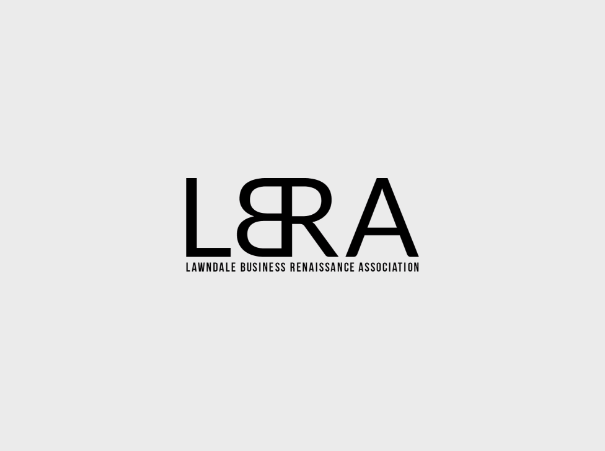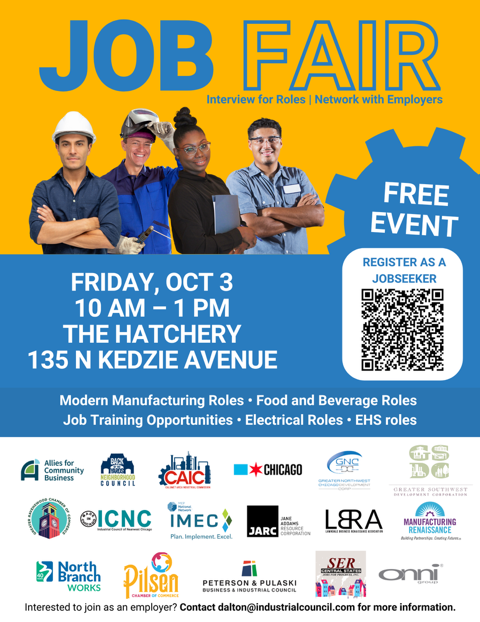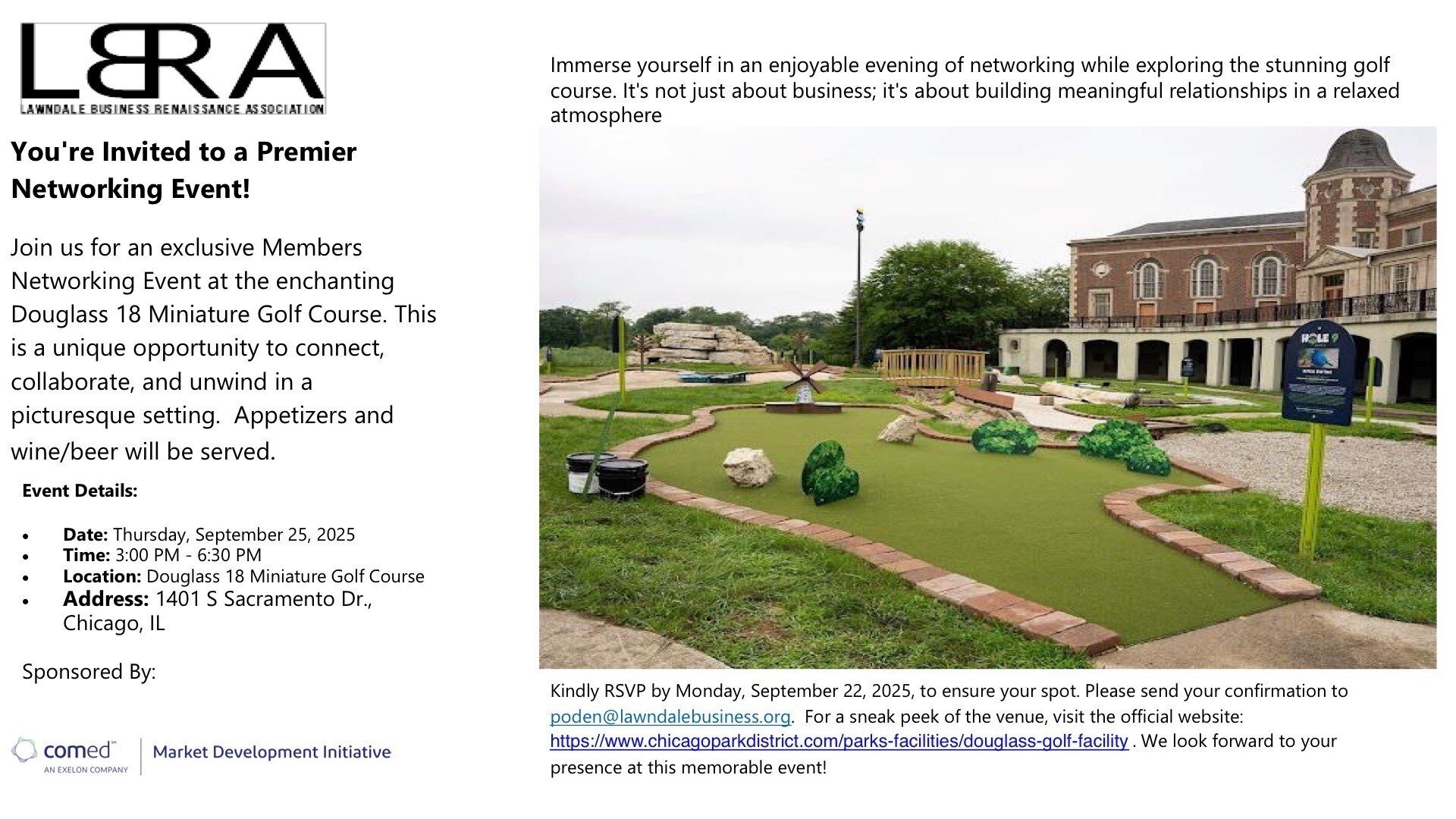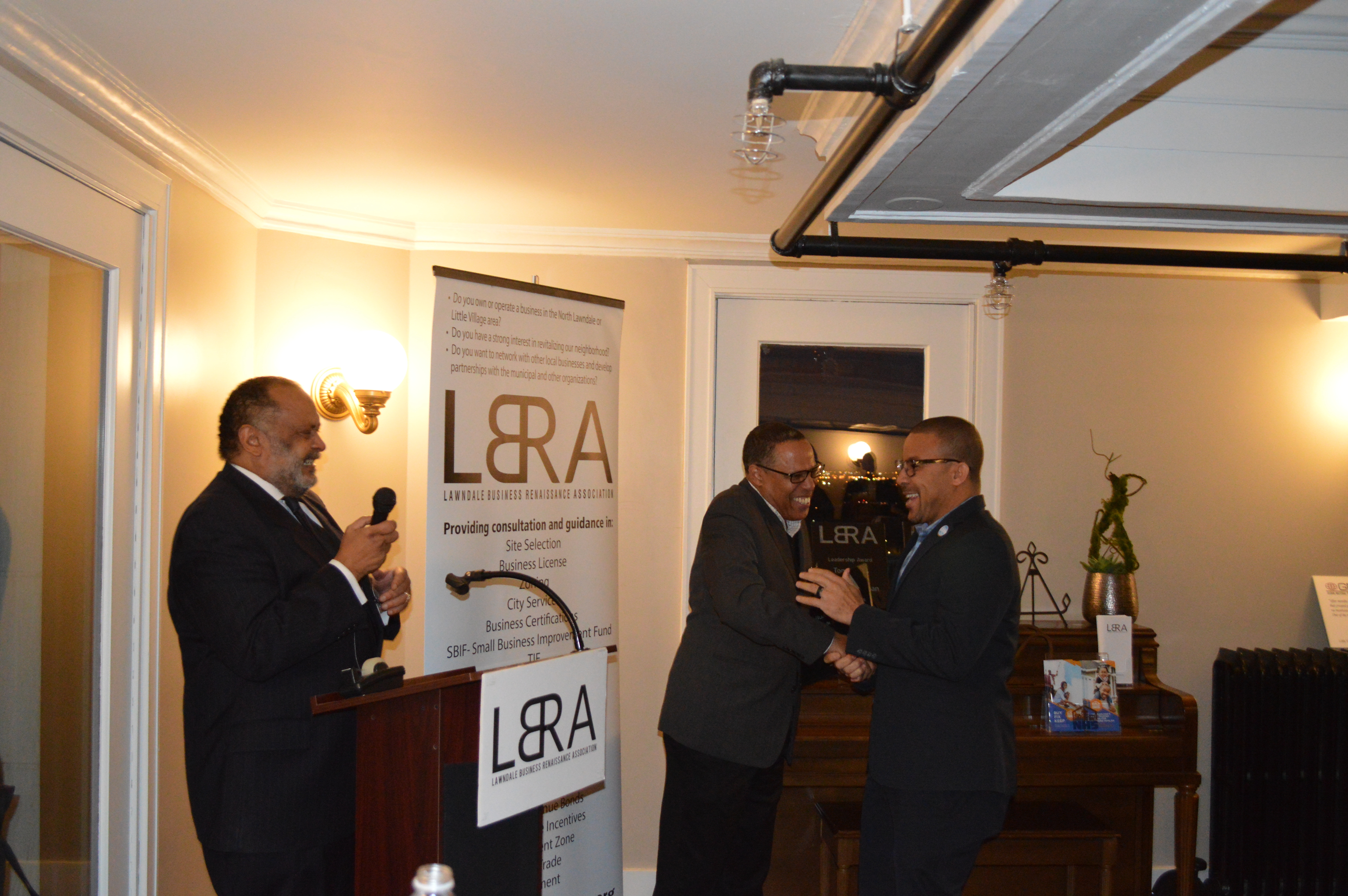Below is an article about LBRA recently featured in the Chicago Tribune.
Lawndale a fertile land for seeds of hope
Come along on the Lawndale “seeds of hope” tour.
Our guide today is Bernard Jennings.
Not long ago, after I wrote a column about Chicago’s neglected West Side, Jennings, who runs the Lawndale Business Renaissance Association, wrote to say he wanted to show me some less obvious attributes of a neighborhood widely known for crime and vacant lots.
“The seeds of hope,” he called them, “in an area with a fertile location for revitalization.”
So on a chilly, sunny day recently, we went.
First stop: The Roscoe Co.
We climbed the indoor stairs of an old brick building, the kind that looks impenetrable and grim when you’re whizzing past on the Eisenhower Expressway, but it was pleasantly airy up in Jim Buik’s office.
“I could sell this business to one of the nationals and walk away a multimillionaire,” Buik said, sitting at a big table next to a window overlooking the expressway. “But I like it here.”
Roscoe is an industrial laundry that washes, dries and delivers commercial floor mats, shop towels, linens and uniforms.
Co-founded in 1921 by Buik’s grandfather, a Scottish immigrant, it was among the few businesses that stayed after riots ravaged the West Side in the 1960s. It has hung on through the economic ups and downs of the decades since.
For a while — one measure of an “up” period — there was even a Starbucks within walking distance.
“We had a lot of meetings over there,” Buik said. He laughed. “Apparently not enough meetings.”
The Starbucks closed. A Taco Bell moved in. But even a Taco Bell is a sign of hope in a neighborhood hungry for commerce.
During the recession of the late 2000s, Buik thought about moving his business — to Aurora, Elgin, Rockford, Milwaukee — but ultimately decided he couldn’t find a better location.
The expressway makes it easy to get in and out. The price of water is right. The 11th District police station is nearby.
Security? It’s a concern, but when worried visitors ask where to park, he assures them, “On the street out front.”
“We have to be very clear where Roscoe is located,” Buik said. “But once they visit, park outside, come in and meet people, that perception of ‘Oh my God, I’m not going to go there’ melts away.”
His 75 employees, he said, include quite a few who live in the neighborhood, which also helps protect the business.
Roscoe is one of the firms that came together a year or so ago to form the Lawndale Business Renaissance Association, a consortium of businesses hoping to keep and build commerce in the neighborhood.
They hired Jennings, a congenial 64-year-old Chicago native whose resume includes supermarket manager and media salesman.
With his knack for penetrating bureaucracies, he’s the guy who helps them navigate city rules, find grants for employee training and facility repairs, and, critically, connects them to each other.
“We’re doing business now with Charter Steel as a result,” Buik said. “It’s 10 minutes away, and I’d never met the owner.”
Charter Steel Trading Co.: Next stop on the tour.
On the way, Jennings drove his rented Nissan Altima past the vast tract that was once the world headquarters of Sears, Roebuck and Co.
Those jobs are long gone, but he pointed out a mixed-income housing complex and, on the old catalog facility site, the Homan Square Community Center, which houses an Olympic-size pool.
Seeds of hope.
Then we spotted a group of guys hanging on a corner.
“You’ve still got that, yes ma’am,” Jennings said. “And they’re not selling fruit.”
After a turn onto West Roosevelt Road, we cruised past men loitering outside a worn storefront that advertises groceries.
“Unfortunately, this is still dismal,” he said. “I can’t see anybody walking out with bags of groceries.”
A few minutes later, we were in Gary Birnbaum’s office.
When Birnbaum, a native New Yorker, opened Charter Steel in 1976, in an old rat-infested factory along Roosevelt, robberies were routine. He’d arrive at work to find the interior walls sprayed with graffiti, and, once, all the furniture tossed outside.
“That’s a true story,” he said.
But thanks to better security systems, more police vigilance and more careful hiring, he worries more now about potholes that blow out the company truck tires than about security.
“Lawndale is a tough place,” he said, “but this area has gotten better.”
What does “tough” mean?
“Drugs,” he said. “We used to have a lot of hookers, but we don’t see them anymore.”
A while back, though, Birnbaum put up a “For Sale” sign.
“Bernard walked in and said, ‘Where are you going?'” he recalled. “I said, ‘Indiana.'”
Jennings helped him find grants to make building repairs, and, with Jennings’ aid, he not only stayed but also expanded to a nearby site, adding 20 employees to his 85.
From certain windows at Charter Steel, you can look out toward the Chicago skyline and look down, just across the street, at the empty land where the University of Illinois at Chicago has proposed building the Obama presidential library.
“You’re going to think I’m wack,” Birnbaum said, “but if you were to get the library here, Trump would come for this area. Land is still cheap.”
Cheap and not that far from Chicago’s humming heart.
That’s what Jennings wants people to see.
“Lawndale is an awesome location,” he said.
He sees it as a simple formula: Bring jobs. Housing will follow. A stable neighborhood will come.
We continued on the tour for a while, up and down streets with no visual charm, but Jennings could see the progress and possibility.
There was a school bus company on the site of a mattress factory that burned down. A parts warehouse in what had been an empty church. A granite company on what had been vacant city land.
Along Kilbourn, a street that felt almost secluded, he showed off a row of businesses: GreenWay Recycling, Meyer Steel Drum, Able Electropolishing, Chicago Steel Container, Nestle.
Seeds of hope.
Waiting for a little more water.
Twitter @MarySchmich
Copyright © 2015, Chicago Tribune






POST COMMENTS